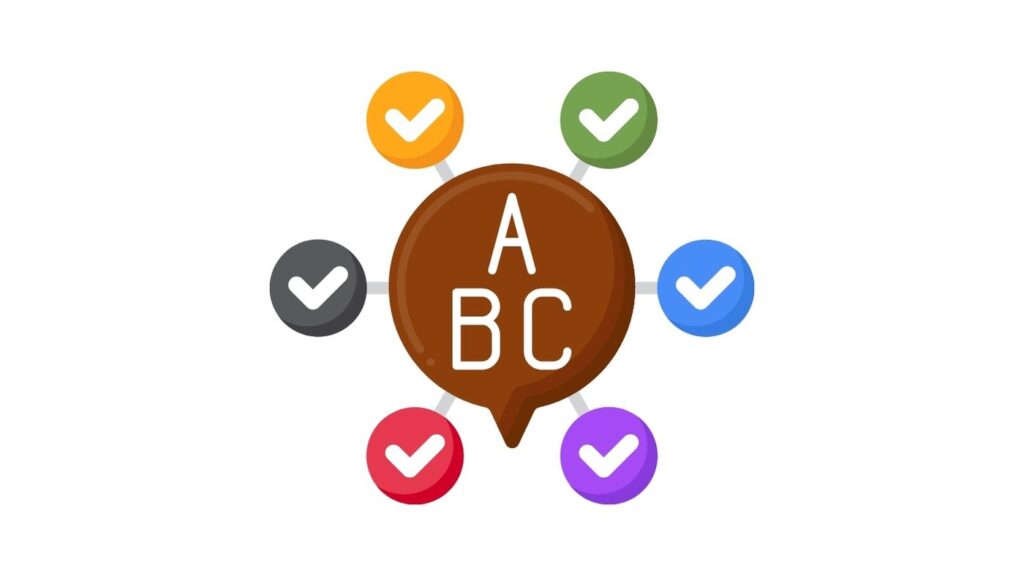Introduction: How To Improve Content Writing Skills
Content writing is the art of creating written material for online platforms such as websites, blogs, and social media. It plays a crucial role in engaging audiences, conveying messages effectively, and ultimately driving desired actions. In today’s digital age, where information is constantly consumed, the ability to write compelling content is a valuable skill.
The purpose of this article is to provide actionable tips on how to improve content writing skills. Whether you’re a beginner looking to enhance your writing abilities or an experienced writer seeking to refine your craft, these tips will help you elevate your content to the next level. By implementing these strategies, you can enhance your writing skills and create content that captivates and resonates with your audience.
Read Regularly:
Engaging in reading is a fundamental method for enhancing writing abilities. It exposes you to different writing styles, vocabulary, and ideas, which can inspire and inform your own writing. Here’s why reading regularly is crucial for enhancing your content writing skills:
- Improves Vocabulary and Language Skills: Reading a variety of materials exposes you to new words and phrases, helping you build a richer vocabulary. This, in turn, allows you to express yourself more effectively in your writing.
- Enhances Writing Style: By reading different genres and styles, you can observe how authors structure their sentences, develop characters, and create engaging narratives. This exposure can help you develop your own unique writing style.
- Inspires Creativity: Reading can spark new ideas and perspectives, stimulating your creativity. It can also help you think critically about different topics, which is essential for producing insightful content.
- Expands Knowledge: Reading exposes you to a wealth of information on various subjects, making you a more informed writer. This knowledge can add depth and credibility to your content.
- Improves Focus and Concentration: Reading requires focus and concentration, skills that are also crucial for effective writing. Regular reading can help you improve these skills, making you a more attentive writer.
Tips for Effective Reading
- Diversify Your Reading Material: Read a mix of fiction, non-fiction, articles, and essays to expose yourself to different writing styles and perspectives.
- Read Different Genres: Explore genres you might not typically read. This can help you discover new ways of storytelling and writing.
- Analyze the Writing: Pay attention to how authors structure their sentences, develop characters, and build plots. Think about what makes their writing effective or engaging.
- Take Notes: Jot down interesting phrases, words, or ideas that you come across. This can serve as inspiration for your own writing.
- Discuss What You Read: Engage in discussions about the material you read. This can help you gain new insights and perspectives, enriching your own writing.
By incorporating regular reading into your routine and actively engaging with the material, you can enhance your writing skills and become a more proficient content writer.

Expand Vocabulary:
A rich vocabulary is essential for effective content writing. It allows you to convey ideas more precisely, make your writing more engaging, and captivate your audience. Here’s why having a broad vocabulary is crucial for content writers:
- Clarity and Precision: A varied vocabulary helps you choose the most appropriate words to express your ideas clearly and precisely. This ensures that your message is conveyed accurately to your audience.
- Engagement: Using a diverse range of words can make your writing more engaging and interesting to read. It can help you avoid repetition and keep your audience interested in your content.
- Credibility: A strong vocabulary can enhance your credibility as a writer. It shows that you have a good command of the language and can communicate effectively with your audience.
- Creativity: A broad vocabulary allows you to be more creative in your writing. You can use words in innovative ways to create vivid imagery and evoke emotions in your readers.
- Professionalism: Using a varied vocabulary can make your writing appear more professional. It can help you stand out as a skilled and knowledgeable writer in your field.
Ways to Expand Vocabulary
- Reading: Reading a variety of materials exposes you to new words and phrases. Make a habit of reading books, articles, and other written content to discover new vocabulary.
- Using a Thesaurus: A Thesaurus is a valuable tool for finding synonyms and expanding your vocabulary. Use it to find alternative words that can add variety to your writing.
- Learning New Words Daily: Make an effort to learn new words every day. You can use vocabulary-building apps, word-of-the-day calendars, or simply keep a list of new words you encounter in your reading.
- Contextual Learning: Pay attention to how new words are used in context. This can help you understand their meanings better and remember them more effectively.
- Practice Using New Words: Try to incorporate new words into your writing and conversations. This will help you remember them and become more comfortable using them.
By actively working to expand your vocabulary through reading, using a thesaurus, and learning new words daily, you can enhance your content writing skills and produce more compelling and impactful content.
Practice Writing Regularly:
Consistent practice is crucial for enhancing any skill, including writing, and is essential to improve content writing skills. It helps you refine your writing style, develop your voice, and build confidence in your abilities. Here’s why regular writing practice is important for enhancing your content writing skills:
- Skill Development: Writing regularly allows you to hone your writing skills. It helps you become more comfortable expressing your ideas and thoughts on paper.
- Creativity Enhancement: Regular writing practice can boost your creativity. It encourages you to think outside the box and explore new ideas and concepts.
- Language Mastery: Practice helps you become more proficient in the language you’re writing in. It improves your grammar, vocabulary, and overall language usage.
- Voice Development: Writing regularly helps you develop your unique writing voice. It allows you to experiment with different styles and find what resonates best with your audience.
- Consistency: Regular practice helps you develop a writing routine, making it easier to stay consistent and avoid writer’s block.
Tips for Effective Writing Practice:
- Set Goals: Establish specific writing goals, such as writing a certain number of words or completing a certain number of articles per week. This aids in maintaining your focus and drive.
- Write on Diverse Topics: Experiment with writing on different topics and in different styles. This not only keeps your writing interesting but also helps you expand your writing skills.
- Seeking feedback is essential: Sharing your writing with others can offer valuable insights and help pinpoint areas for improvement.
- Edit Your Work: After you’ve written a piece, take the time to edit and revise it. This helps you refine your writing and improve its overall quality.
- Read Aloud: Reading your writing aloud is a beneficial practice to improve content writing skills, as it can help you identify awkward phrasing, errors, and areas that need improvement.
By incorporating regular writing practice into your routine and following these tips, you can enhance your content writing skills and become a more proficient and confident writer.
Understand Your Audience:
Understanding your audience is crucial for creating effective content. It allows you to tailor your writing to meet the needs and interests of your readers, making your content more engaging and impactful. Here’s why knowing your target audience is important for content writing:
- Relevance: Understanding your audience ensures that the content you create is tailored to their interests, needs, and challenges, making it more relevant to them. This makes your content more valuable to them.
- Engagement: Knowing your audience enables you to use language, tone, and style that resonate with them. This can help you connect with your audience on a deeper level and keep them engaged.
- Effectiveness: Tailoring your content to your audience can make it more effective in achieving its intended goals, whether that’s informing, persuading, or entertaining.
- Building Trust: By understanding your audience’s preferences and concerns, you can build trust with them. This can lead to stronger relationships and loyalty over time.
- Targeted Marketing: Understanding your audience is essential to improving content writing skills, as it allows you to target your marketing efforts more effectively. You can tailor your messages to specific segments of your audience, increasing the likelihood of success.
Tips for Understanding the Audience
- Research: Research to learn more about your target audience. This can include demographic information, interests, preferences, and behavior patterns.
- Create Personas: Develop personas that represent different segments of your audience. This can help you visualize and understand the needs and motivations of each group.
- Engage with the Audience: Interact with your audience through social media, surveys, and feedback forms. This can help you gather valuable insights and feedback directly from your audience.
- Analyzing Data: Use analytics tools to track the performance of your content. This can help you understand what resonates with your audience and adjust your content strategy accordingly.
- Stay Updated: Keep abreast of trends and changes in your industry and among your audience. This can help you adapt your content to remain relevant and engaging.
By taking the time to understand your audience and implementing these tips, you can create content that is more targeted, engaging, and effective.

Master Grammar and Punctuation:
Mastering grammar and punctuation is essential for effective writing. It ensures clarity, coherence, and professionalism in your writing. Here’s why proper grammar and punctuation are important:
- Clarity: Proper grammar and punctuation help convey your message clearly. They ensure that your sentences are structured correctly, making it easier for readers to understand your writing.
- Credibility: Good grammar and punctuation enhance your credibility as a writer. They show that you take care in your writing and pay attention to detail.
- Professionalism: Using correct grammar and punctuation is essential for creating a professional impression. It demonstrates your respect for your readers and your commitment to producing high-quality work.
- Readability: Proper grammar and punctuation improve the readability of your writing. They help you organize your ideas and make your writing flow more smoothly.
- Avoid Misinterpretation: Incorrect grammar and punctuation can lead to misinterpretation of your writing. By mastering these aspects, you can ensure that your message is conveyed accurately.
Tips for Mastering Grammar and Punctuation
- Study Guides: Use grammar and punctuation study guides to learn the rules and principles. These guides often provide clear explanations and examples to help you understand the concepts.
- Online Resources: Utilize online resources such as grammar websites, tutorials, and forums. These resources offer explanations, exercises, and quizzes to help you practice and improve.
- Practice Exercises: Regular practice is key to mastering grammar and punctuation. Look for grammar workbooks or online exercises to reinforce your learning.
- Read Widely: Reading extensively can help you internalize grammar and punctuation rules. Pay attention to how published authors use language correctly in their writing.
- Seek Feedback: Ask for feedback on your writing from peers, mentors, or teachers. They can assist you in pinpointing areas for improvement and offer guidance on how to rectify them.
By incorporating these tips into your writing practice, you can improve your grammar and punctuation skills and enhance the quality of your writing.
Edit and Proofread Your Work:
Editing and proofreading play pivotal roles in the content writing process. They help improve the quality of your writing by correcting errors and refining your content. Here’s the significance of editing and proofreading:
- Error Correction: Editing and proofreading help you identify and correct errors in grammar, punctuation, spelling, and formatting. This ensures that your content is clear, concise, and professional.
- Clarity and Coherence Editing and proofreading are essential to improve content writing skills, as they help you improve the clarity and coherence of your writing. They allow you to organize your ideas logically and ensure that your content flows smoothly.
- Consistency: Editing and proofreading help you maintain consistency in your writing. They ensure that your tone, style, and formatting are uniform throughout your content.
- Polish and Professionalism: Editing and proofreading add polish to your writing, making it more professional and engaging. They help you refine your language and style to make your content more impactful.
- Accuracy: Editing and proofreading help you ensure the accuracy of your content. They allow you to fact-check information and ensure that your content is reliable and trustworthy.
Tips for Effective Editing and Proofreading
- Take Breaks: Take breaks between writing and editing sessions to give yourself a fresh perspective. This can help you identify errors and areas for improvement more effectively.
- Use Tools: Use editing and proofreading tools such as grammar checkers, spell checkers, and plagiarism detectors to help you catch errors and improve the quality of your writing.
- Seek Feedback: Ask for feedback from peers, mentors, or colleagues. They can offer valuable insights and suggestions to enhance your content.
- Read Aloud: Reading your writing aloud can help you identify awkward phrasing, errors, and inconsistencies. It can also help you assess the overall flow and tone of your content.
- Check Formatting: Ensure that your content is formatted correctly and consistently. Pay attention to headings, subheadings, lists, and other formatting elements.
By incorporating these tips into your editing and proofreading process, you can improve the quality of your content and enhance your content writing skills.
Learn from Others:
Learning from experienced writers is a valuable way to improve your content writing skills. It allows you to gain insights, learn new techniques, and refine your approach to writing. Here’s why learning from others is important:
- Gain Insights: Experienced writers have valuable insights and knowledge that you can learn from. They can offer tips, advice, and perspectives that can help you improve your writing.
- Learn New Techniques: By studying the work of experienced writers, you can learn new writing techniques and styles. This can help you expand your repertoire and develop your own unique voice as a writer.
- Avoid Mistakes: Learning from others can help you avoid common writing mistakes. By understanding what works and what doesn’t, you can improve the quality of your own writing.
- Inspiration and Motivation: Reading the work of experienced writers can be inspiring and motivating. It can encourage you to push yourself creatively and strive for excellence in your writing.
- Build Confidence: Learning from others can help you build confidence in your own writing abilities. By seeing the success of others and learning from their experiences, you can gain the confidence to take risks and try new things in your writing.
Tips for Learning from Others
- Reading Their Work: Read the work of experienced writers in your field. Pay attention to their writing style, tone, and approach to storytelling.
- Studying Their Techniques: Analyze the techniques that experienced writers use in their writing. Look for patterns, structures, and strategies that you can incorporate into your own writing.
- Seeking Mentorship: Consider seeking mentorship from an experienced writer to improve content writing skills. A mentor can provide guidance, feedback, and support as you develop your writing skills.
- Joining Writing Groups or Workshops: Participate in writing groups or workshops where you can interact with and learn from other writers. This can provide valuable feedback and encouragement.
- Networking: Network with other writers online or in person. Engaging with other writers can help you build relationships and learn from their experiences.
By actively seeking to learn from experienced writers and implementing their techniques and advice into your own writing, you can improve your content writing skills and become a more effective writer.
Stay Updated with Trends:
Staying informed about industry trends is crucial for content writers. It allows you to create relevant, timely, and engaging content that resonates with your audience. Here’s why staying updated is important:
- Relevance: Knowing the latest trends in your industry helps you create content that is relevant to your audience’s interests and needs. This can help you attract and retain readers.
- Competitive Advantage: Staying updated gives you a competitive advantage. It allows you to stay ahead of competitors by anticipating changes and trends in the market.
- Innovation: Industry trends often reflect new technologies, ideas, and approaches. Staying updated can inspire you to innovate and try new things in your content.
- Authority: Being knowledgeable about industry trends can position you as an authority in your field. It can enhance your credibility and attract a larger audience.
- Engagement: Content that reflects current trends is more likely to engage readers. It shows that you are aware of what’s happening in your industry and can spark conversations with your audience.
Tips for Staying Updated
- Reading Industry Publications: Subscribe to industry publications, blogs, and newsletters. These sources often provide insights into the latest trends and developments in your field.
- Following Influencers: Follow influencers and thought leaders in your industry on social media. They often share valuable insights and updates that can keep you informed.
- Attending Webinars and Events: Attend webinars, conferences, and industry events. These events are great opportunities to learn from experts, network with peers, and stay updated on industry trends.
- Networking: Network with other professionals in your industry. Joining professional groups or forums can help you stay informed about trends and developments.
- Continuous Learning: To improve content writing skills, commit to continuous learning. Stay curious and seek out new information and perspectives to stay updated.
By incorporating these tips into your routine, you can stay updated with industry trends and create content that is relevant, timely, and engaging for your audience.
Conclusion:
Improving your content writing skills is a continuous process that requires dedication and practice. By implementing the tips outlined in this article on how to improve content writing skills, you can enhance your writing abilities and create more engaging and impactful content. Here’s a summary of the key points discussed:
- Read Regularly: Reading diverse content helps expand your vocabulary and exposes you to different writing styles.
- Expand Vocabulary: Actively work on expanding your vocabulary through reading, using a thesaurus, and learning new words daily.
- Practice Writing Regularly: Regular writing practice helps you hone your skills and develop your unique writing voice.
- Understand Your Audience: Knowing your audience helps you create content that resonates with them and meets their needs.
- Master Grammar and Punctuation: Proper grammar and punctuation are essential for clear and effective writing.
- Edit and Proofread Your Work: Editing and proofreading help improve the quality of your writing by correcting errors and refining your content.
- Learn from Others: Learning from experienced writers can provide valuable insights and help you improve your writing techniques.
- Stay Updated with Trends: Staying informed about industry trends helps you create relevant and timely content.
In conclusion, improving your content writing skills requires commitment and a willingness to learn. By incorporating these tips into your writing practice, you can enhance your skills and create content that captivates and resonates with your audience. Start implementing these tips today and see your content writing skills improve!










